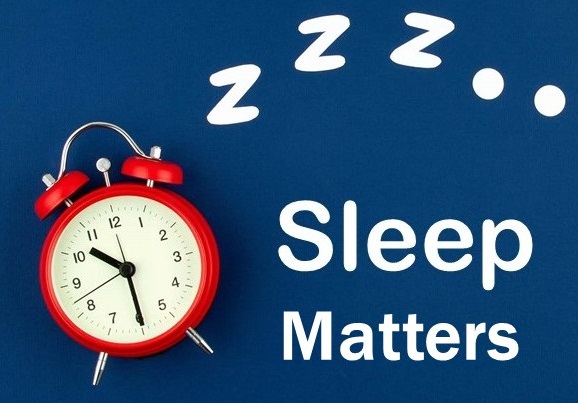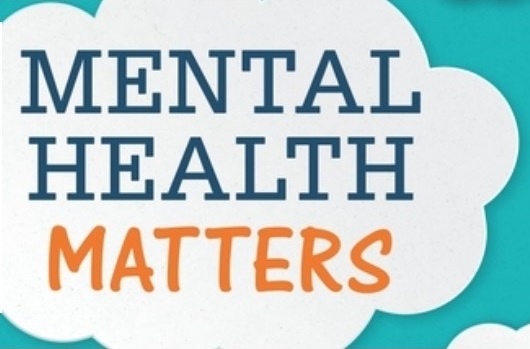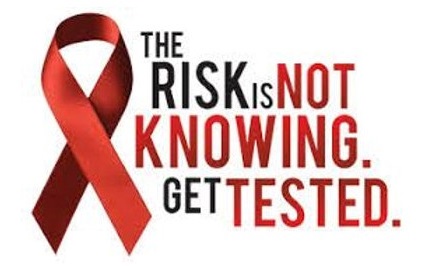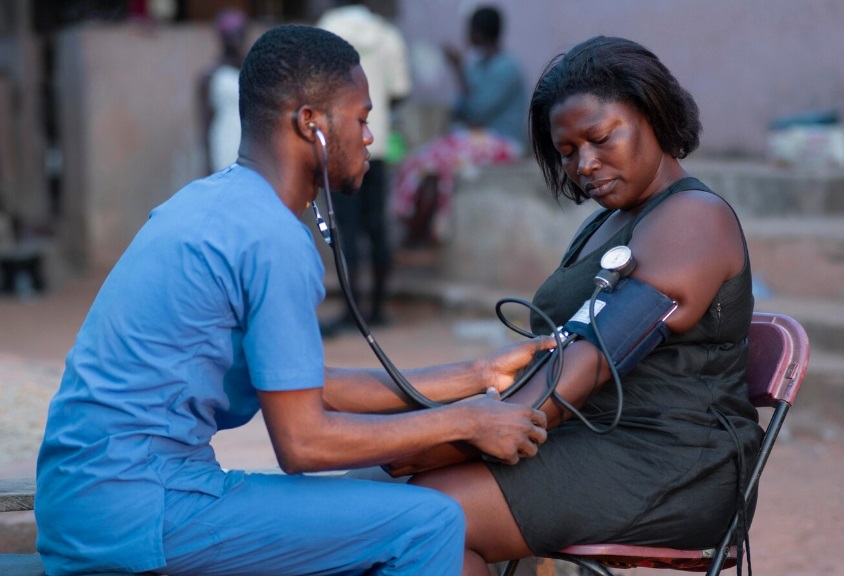By: Favour Okere. BNSc. RN. Freelance Health Writer. Medically reviewed by the DLHA Team.
.jpg)
Five young African adults standing and posing together.
Imagine you are in your late 20s or 30s, juggling a demanding career, family responsibilities, and social commitments. You feel like a superhero and believe that health concerns are problems for "older" people. But did you know that the choices you make today will shape your health for decades to come?
Consider these sobering facts:
But it is not all gloom and doom. The good news is that many of these health issues are preventable or manageable with the right knowledge and actions. By taking charge of your health now, you're not just avoiding future problems, you will also be investing in a higher quality of life, increased productivity, and the ability to fully enjoy your prime years.
In this article, you will find practical tips that address the unique health needs of young Africans. From nutrition and exercise to mental health and disease prevention, your best years are still ahead, and you can make every time count!

Good health starts with eating healthy. Image credit: Freepik
The foundation of good health is built on what you put on your plate. Traditional African foods are diverse and rich in nutritional value. However, modern lifestyles and urbanization have led to a shift towards processed foods high in sugar, salt, and unhealthy fats [7]. Here's how to nourish your body the right way:
Related: Best Nigerian diet for weight loss

An adult black male standing and drinking water from a bottle. Image credit: wayhhome studio on Freepik
Africa is the most tropical continent and can get really hot [8]. Staying hydrated is important for maintaining good health. Good hydration supports every system in your body, from regulating body temperature to aiding digestion and promoting clear skin. You can stay well-hydrated always by doing these:
Staying hydrated is a simple yet powerful way to support your overall health and well-being. Make it a habit, and your body will thank you!
Related: 10 Health Benefits Of Drinking Water

A young black lady exercising on a treadmill.
The importance of exercise can not be overstated. It helps you maintain a healthy weight, reduces the risk of chronic diseases, and improves your mental health [9].
Start small and gradually increase your activity level. The key is consistency and making exercise a regular part of your lifestyle.
Here's how you can stay physically fit:
Related: Does exercise promote general health? and 7 Tips for Sustainable Exercise for Beginners in Africa

Quality nightly sleep matters.
In today's fast-paced world, sleep often takes a backseat to work and social activities. But, prioritizing sleep is not a luxury but a necessity for your health and success. Quality sleep is vital for physical and mental health, productivity, and overall well-being [10]. Aim for 7-9 hours of quality sleep each night to feel refreshed and ready to tackle your day.
You can improve your sleep habits by:
Related: Normal sleep: What Africans should know

Mental Health matters. Speak out,
Mental health is a huge part of overall well-being, yet it is often overlooked or stigmatized in many African communities [11]. Africans under 40 face unique stressors such as career pressures, relationship challenges, and societal expectations. You can maintain your mental health by doing these:
Related: Why mental health matters

Sexual and Reproductive Health: Know your status, get tested.
Sexual and reproductive health is rarely spoken of and surrounded by misinformation in Africa. But, you ought to be informed and proactive about your sexual and reproductive health as it constitutes an integral aspect of your overall well-being [12]. Here's how you can go about it:

Embrace prevention, stay current with your vaccination. Image credit: Freepik
The phrase 'prevention is better than cure' is often attributed to the Dutch philosopher Desiderius Erasmus around 1500. It is now a fundamental principle of public health. Promotion of healthy lifestyle and disease prevention is a critical aspect of maintaining good health [13]. Here are some ways to do this:
Related: Prevention of Unexpected, Sudden Natural Death in Young African Adults

A young African lady having blood pressure check.
While we often associate chronic diseases with older age, many young Africans are increasingly affected by conditions like hypertension, diabetes, and asthma [14]. If you have a chronic condition, here is how to manage it effectively:
Related: 10 tips for Africans on living healthy

A nature scene in East Africa; flowing river banked by lush vegetation..
Your environment can affect your health and well-being. [15]. You should be mindful of the following:
Conclusion
The health choices you make today will shape not only your future but also the future of your community and nation. By taking proactive steps to care for your overall health, you would be setting yourself up for decades of vitality.
Always remember that maintaining your health is a lifelong journey. It is about making consistent, informed choices that align with your values and goals. Health concerns are not only for the elderly. By starting now, you can build your immunity, prevent chronic diseases, and be the healthiest version of yourself.
1. Parati G, Lackland DT, Campbell NRC, Owolabi MO, Bavuma C, et al. How to improve awareness, treatment, and control of hypertension in Africa, and how to reduce its consequences: A call to action from the World Hypertension League. Hypertension, 2022;79(9),1949–1961. doi: 10.1161/HYPERTENSIONAHA.121.18884. Available from here
2. Xie J, Wang M, Long Z, Ning H, Li J, Cao Y, Liao Y, Liu G, Wang F, Pan A. Global burden of type 2 diabetes in adolescents and young adults, 1990-2019: systematic analysis of the Global Burden of Disease Study 2019. BMJ. 2022 Dec 7;379:e072385. doi: 10.1136/bmj-2022-072385. Available from here
3. Diawara A, Coulibaly DM, Hussain TYA, Cisse C, Li J, Wele M, Diakite M, Traore K, Doumbia SO, Shaffer JG. Type 2 diabetes prevalence, awareness, and risk factors in rural Mali: a cross-sectional study. Sci Rep. 2023 Mar 6;13(1):3718. doi: 10.1038/s41598-023-29743-1. Available from here
4. Gbadamosi IT, Henneh IT, Aluko OM, Yawson EO, Fokoua AR, Koomson A, Torbi J, Olorunnado SE, Lewu FS, Yusha'u Y, Keji-Taofik ST, Biney RP, Tagoe TA. Depression in Sub-Saharan Africa. IBRO Neurosci Rep. 2022 Mar 17;12:309-322. doi: 10.1016/j.ibneur.2022.03.005.. Available from here
5. UNAIDS Fact sheet 2024. Global HIV statistics [Internet]. Cited 2024 October 4. Available from here
6. Currie DW, West CA, Patel HK, et al. Risk Factors for Recent HIV Infections among Adults in 14 Countries in Africa Identified by Population-Based HIV Impact Assessment Surveys, 2015–2019. Emerging Infectious Diseases. 2023;29(11):2325-2334. doi:10.3201/eid2911.230703. Available from here
7. Vermeulen SJ, Park T, Khoury CK, Béné C. Changing diets and the transformation of the global food system. Ann N Y Acad Sci. 2020 Oct;1478(1):3-17. doi: 10.1111/nyas.14446. Available from here
8. Kunda J, Gosling S, Foody G. The effects of extreme heat on human health in tropical Africa. Int J Biometeorol. 2024 Jun; 68(6):1015-1033. doi: 10.1007/s00484-024-02650-4. Available from here
9. CDC. Benefits of Physical Activity. Physical Activity Basics. [Internet, 2024 April 24]. Cited 2024 October 5. Available from here
10. Scott AJ, Webb TL, Martyn-St James M, Rowse G, Weich S. Improving sleep quality leads to better mental health: A meta-analysis of randomised controlled trials. Sleep Med Rev. 2021 Dec;60:101556. doi: 10.1016/j.smrv.2021.101556. Available from here
11. Wada YH, Rajwani L, Anyam E, Karikari E, Njikizana M, Srour L, Khalid GM. Mental health in Nigeria: A Neglected issue in Public Health. Public Health Pract (Oxf). 2021 Jul 29;2:100166. doi: 10.1016/j.puhip.2021.100166. Available from here
12. Lukumay GG, Mgopa LR, Mushy SE, Rosser BRS, Massae AF, Mkonyi E, Mohammed I, Mwakawanga DL, Trent M, Wadley J, Ross MW, Bonilla Z, Leshabari S. Community myths and misconceptions about sexual health in Tanzania: Stakeholders' views from a qualitative study in Dar es Salaam Tanzania. PLoS One. 2023 Feb 10;18(2):e0264706. doi: 10.1371/journal.pone.0264706. Available from here
13. Royal College of Nursing, UK. Prevention is better than cure. [Internet, n.d]. Cited 2024 October 4] Available from here.
14. Mohamed, S., Haregu, T., Uthman, O. Multimorbidity from chronic conditions among adults in urban slums: The awi-gen nairobi site study findings. Global Heart, 2021;16(1). Doi: 10.5334/gh.771. Available from here
15. National Research Council (US); Institute of Medicine (US). U.S. Health in International Perspective: Shorter Lives, Poorer Health. Woolf SH, Aron L, editors. Washington (DC): National Academies Press (US); 2013. Available from here
Additional Resource:
Unexpected, Sudden Natural Death in Young African Adults: Causes
Published: October 12, 2024
© 2024. Datelinehealth Africa Inc. All rights reserved.
Permission is given to copy, use and share content for non-commercial purposes without alteration or modification and subject to source attribution.
DATELINEHEALTH AFRICA INC., is a digital publisher for informational and educational purposes and does not offer personal medical care and advice. If you have a medical problem needing routine or emergency attention, call your doctor or local emergency services immediately, or visit the nearest emergency room or the nearest hospital. You should consult your professional healthcare provider before starting any nutrition, diet, exercise, fitness, medical or wellness program mentioned or referenced in the DatelinehealthAfrica website. Click here for more disclaimer notice.